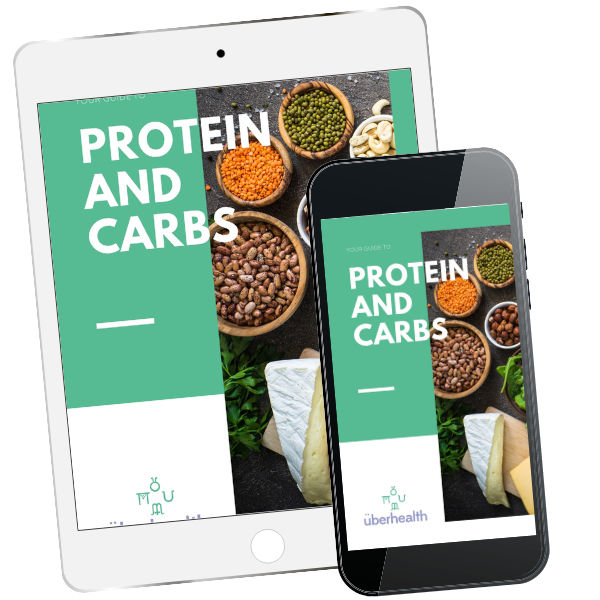When Wellness Becomes Overwhelming

I’ve been in the health industry for nearly 20 years now, and it still manages to amaze, inspire, frustrate, and confuse me—sometimes all at once. Nutrition is a relatively young science, and the goalposts keep shifting. What was considered sound advice five years ago can be questioned today—and by next week, it might have changed again.
It’s no wonder people feel overwhelmed. I do too—and I study this stuff for a living.
Sorting Through the Noise
Between books, blogs, social media, and scientific journals, the nutrition and wellness space has exploded. There's more information than ever—some of it timeless, some of it evidence-based, and some of it... let’s just say, questionable.
I could spend (and often do) hours every day reading, researching, and trying to stay abreast of the latest updates. And even with all that effort, it’s easy to feel like you’re just being swept along in a whirlwind of advice.
Everyone seems to have the “right” answer, backed by research or personal success stories, yet the messages often contradict each other. It’s easy to feel like you’re getting it wrong—no matter what you’re doing.
When Eating Becomes an Identity
The wellness world has evolved far beyond simple dietary choices. For many people, how they eat has become part of their identity.
Paleo, vegan, vegetarian, raw foodist, intermittent faster, plant-based, omnivore, gluten-free, low FODMAP—you name it. Each approach has its thought leaders, its core principles, and its own version of the “right way to eat.” Many people become deeply committed to their chosen style, and online debates can get surprisingly heated over what’s “best.”
And while it’s easy to poke fun, the truth is, most eating philosophies are trying to do the same thing: help people feel better, live longer, and take care of their bodies.
The Common Ground
Despite the differences, most nutrition frameworks share a similar foundation:
-
Eat mostly whole, unprocessed foods
-
Focus on plenty of vegetables and fruits
-
Minimise refined sugar and highly processed foods
-
Drink water
-
Prioritise good sleep and regular movement
-
Eat enough protein to support your needs
When you strip back the details, this is the core of most dietary advice—regardless of the label attached to it.
Detox Diets: The Modern Reset
Let’s talk about detoxes. Whether it’s a juice cleanse, sugar-free challenge, or a few weeks off alcohol, people often turn to these as a way to “undo” a run of indulgence.
There’s nothing wrong with wanting a reset. Life is full, things slip, and sometimes it feels good to give your body a bit of a break. But detoxing isn’t a moral obligation—and it doesn’t need to come with guilt or extremes. You can just call it recalibrating.
If a short-term plan helps you reset your habits and feel better in your body—great. But be wary of approaches that are overly restrictive or promise miracles. Headaches, fatigue, and cravings are often part of the process, especially if the detox is drastic. Go gently, and make sure your approach fits with your lifestyle.
Healthy Living as a Competition?
There’s also a growing trend of turning health into a status symbol. The perfect smoothie. The cleanest pantry. The most disciplined diet.
It can start to feel like everyone’s competing to be the “healthiest” person in the room—often through how much they restrict rather than what they include. Elimination diets, food challenges, or 30-day resets can be incredibly useful diagnostic tools. But they don’t need to be worn as badges of honour.
Health is personal. It’s also dynamic. What works for one person may not suit another—and what worked for you last year might not suit you now.
Navigating Trends with Perspective
Some foods rise and fall with trend cycles. Coconut oil was once villainised and now appears in everything. Quinoa and chia seeds have gone from pantry unknowns to daily staples. And let’s not even get started on kale.
It’s good to remember that many so-called “superfoods” have been used in traditional diets for centuries. Their rise to fame doesn’t necessarily make them better—it just means someone finally marketed them well.
Instead of fixating on what’s “hot” or “new,” it’s worth focusing on what’s consistent, nourishing, and makes you feel good in your own body.
Where to From Here?
If you’re feeling overwhelmed by the wellness noise, you’re not alone. Nutrition can be confusing, especially when everyone has an opinion, a protocol, or a new study to reference.
Try not to get too caught up in extremes. Come back to the basics. Choose real food most of the time. Pay attention to how your body feels. Get some movement and rest. And give yourself the flexibility to change as your needs change.
And remember—eating well doesn’t have to be complicated. It doesn’t need a label. It just needs to work for you.
FREE RESOURCE


